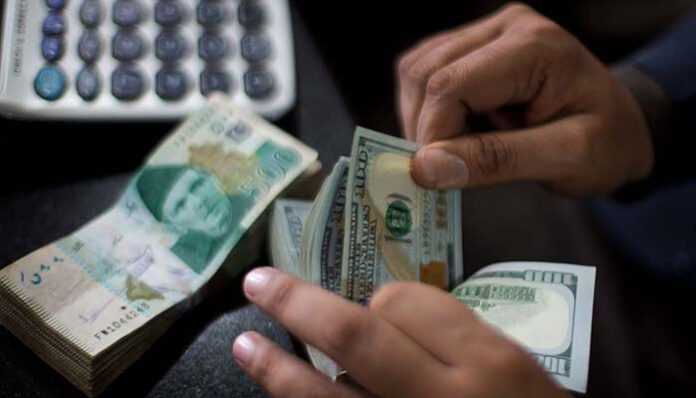KARACHI: Pakistani rupee continued struggling against the US dollar in the inter-bank for the fourth consecutive session on Monday and set an all-time low of Rs169.60.
According to the State Bank of Pakistan, the local unit depreciated by 52 paisas (-0.31 percent) against the greenback, as the US dollar opened at Rs169.08 and closed at Rs169.60. Within the open market, the rupee was traded at Rs170.50/171.50 per dollar.
The Pakistani rupee shed Rs0.91 during the last week against the US dollar, while depreciation during the fiscal year 2021-22 has been Rs12.18. The local unit has shed Rs9.33 against the US dollar in the current year 2021.
The local currency has maintained a downtrend after it touched 22-month high of Rs152.27 in May 2021, losing a cumulative Rs17.29 in the past four months to date. Earlier, the rupee made a historic low of Rs169.12 on September 15 last against the dollar.
According to currency dealers, the demand for the US dollar remained high as the market opened after two weekly holidays. They said the dollar’s demand is high because of import and corporate payments due to the quarter-end. They added by every quarter-end, foreign entities operating in Pakistan repatriate profit and dividends to their parent companies abroad.
They said that widening of trade deficit and the current account deficit also deteriorated the market sentiments. They said that import payment hit a historic high of around $6.4 billion in August while the previous peak was recorded in June at $6.3 billion. On the flipside, export earnings have remained sluggish at around $2.2 billion a month during the same months. The uptrend in international commodity prices suggests that Pakistan’s import bill would remain high going forward.
The prices of oil and food items are soaring in the world markets. In addition to this, businesses are set to make hefty imports of plant and machinery to set up new factories and expand the existing production lines under the central bank’s initiative Temporary Economic Refinance Facility (TERF), they said. Imports are set to skyrocket due to the government’s policy of expansion and growth in the domestic economy, they said.




